How to deal with separation anxiety in babies, toddlers and parents
How to deal with separation anxiety in babies and hope to cope if you're struggling as a parent.
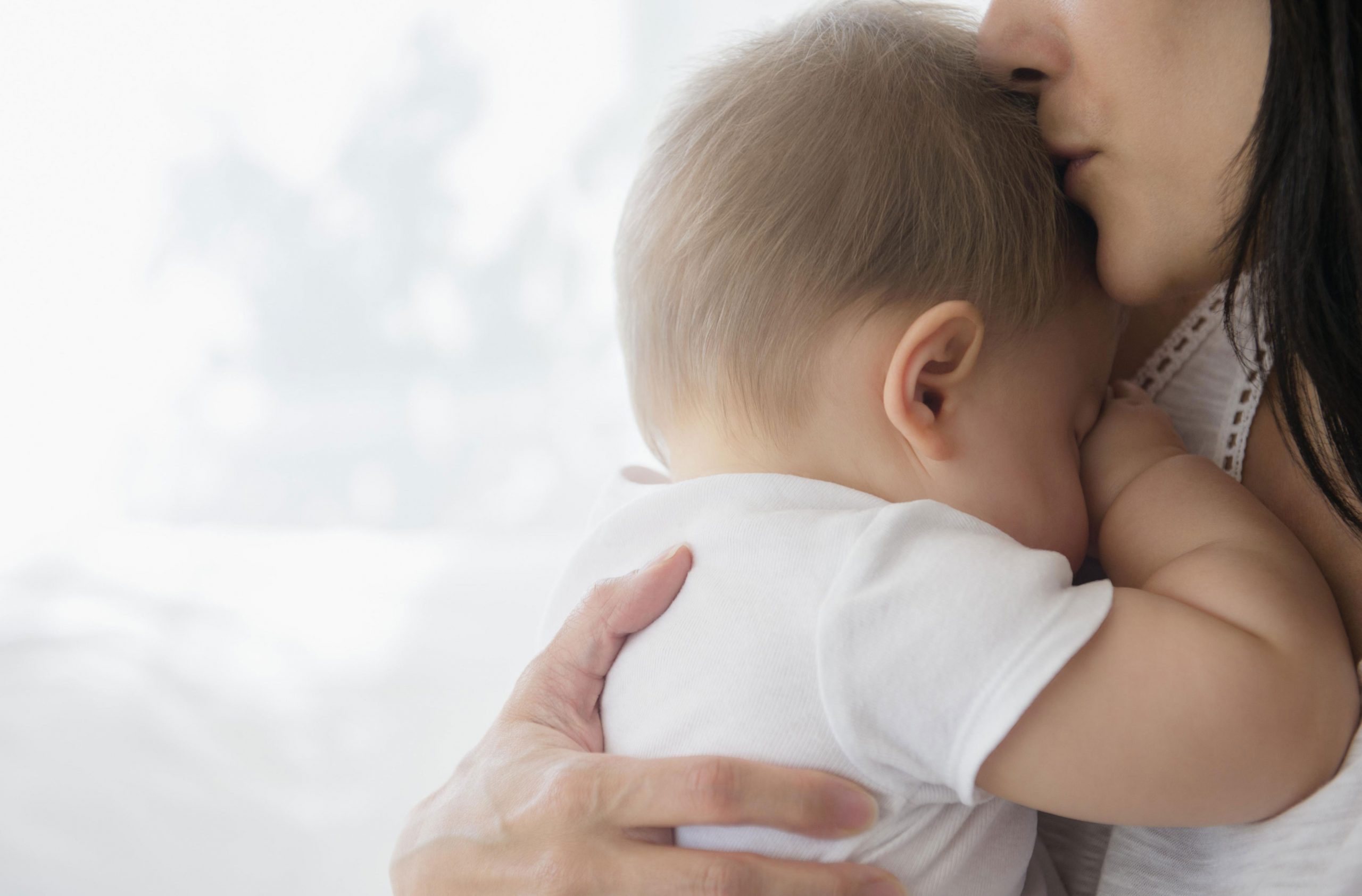
Many parents struggle with being away from their children, particularly when they are young, but it's important you don't let separation anxiety stop them from developing.
It can be draining on mothers when a child wants to be with them every second of the day, and some parents may not be able to tell when the separation anxiety has become a real problem.
Of course, it is natural for children, especially babies, to get upset when they part from their mother or father, or main caregiver, but it’s vital that their anxiety doesn’t hold them back.
What is a separation anxiety?
Separation anxiety disorder (SAD) is when an individual experiences excessive anxiety when separated from their home or from people to whom they have a strong emotional attachment.
Separation anxiety can make it difficult for parents to leave their baby at nursery or in someone else's care. They may end up feeling distressed by their tears and worry about the effect it has on their child every time they leave them.
Dr. Sheri Jacobson, Clinical Director of Harley Therapy, explains: 'Separation anxiety is actually a normal stage of development, even if it can seem anything but when your child is clinging to you and screaming louder than you knew they were capable of!'
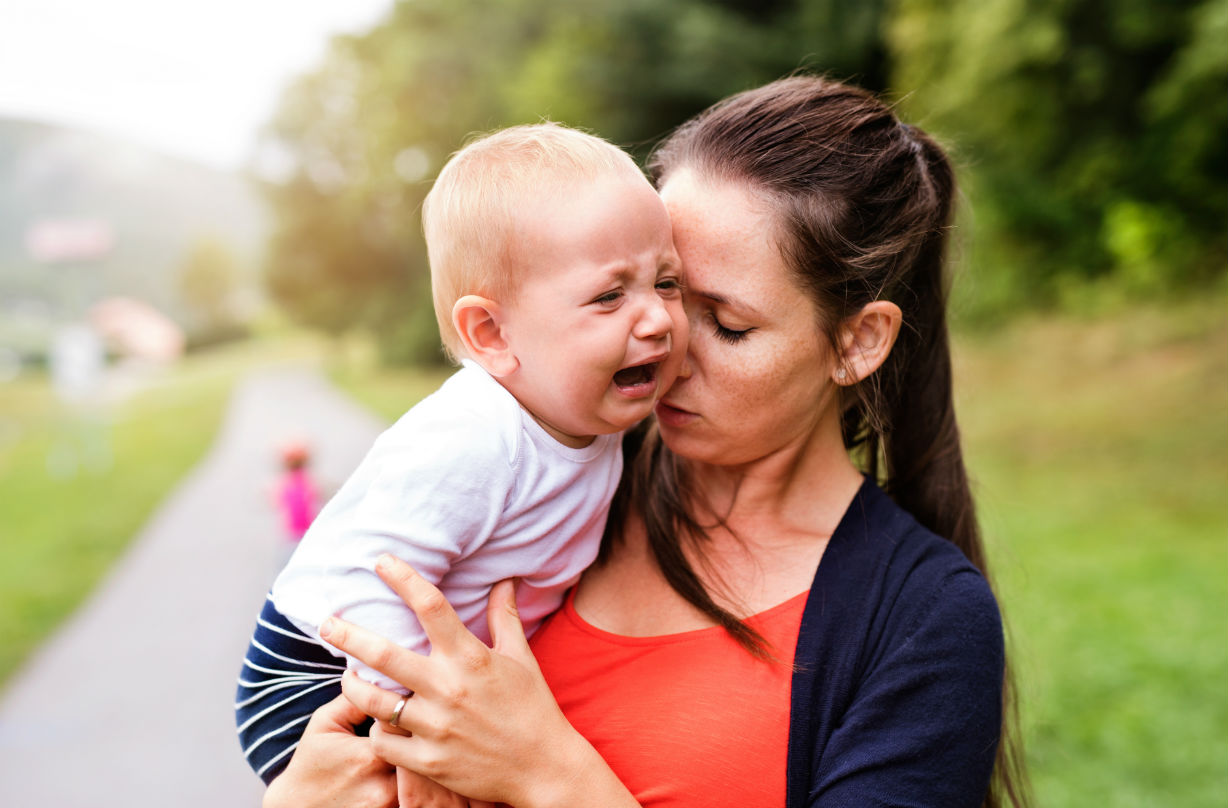
Separation anxiety in babies and toddlers: What are the affects?
Separation anxiety can often be unavoidable as babies and toddlers have a tendency to get clingy and cry if their parents or their other carers leave them, even for a short time.
Parenting advice, hot topics, best buys and family finance tips delivered straight to your inbox.
Separation anxiety and a fear of strangers is common in young children between the ages of six months and three years, but it is a normal part of any child's development and they usually grow out of it.
If your baby used to be calm when you left the room and they were happy to be held by people they didn't know, it may seem strange when they suddenly start crying whenever you're not there, or strangers are close. But separation anxiety is a sign your baby now realises how dependent they are on the people they know, who care for them.
Very often this opposition stems from your child’s anxiety that something bad will happen to them or to the primary caregiver during the time that they are separated.
This can result in physical symptoms such as upset stomachs, headaches and disturbances to sleep patterns. But as they get more aware of their surroundings, your baby's strong relationship with this small group means they don't feel so safe without you. Their growing awareness of the world around them can also make them feel unsafe or upset in new situations or with new people, even if you are there.
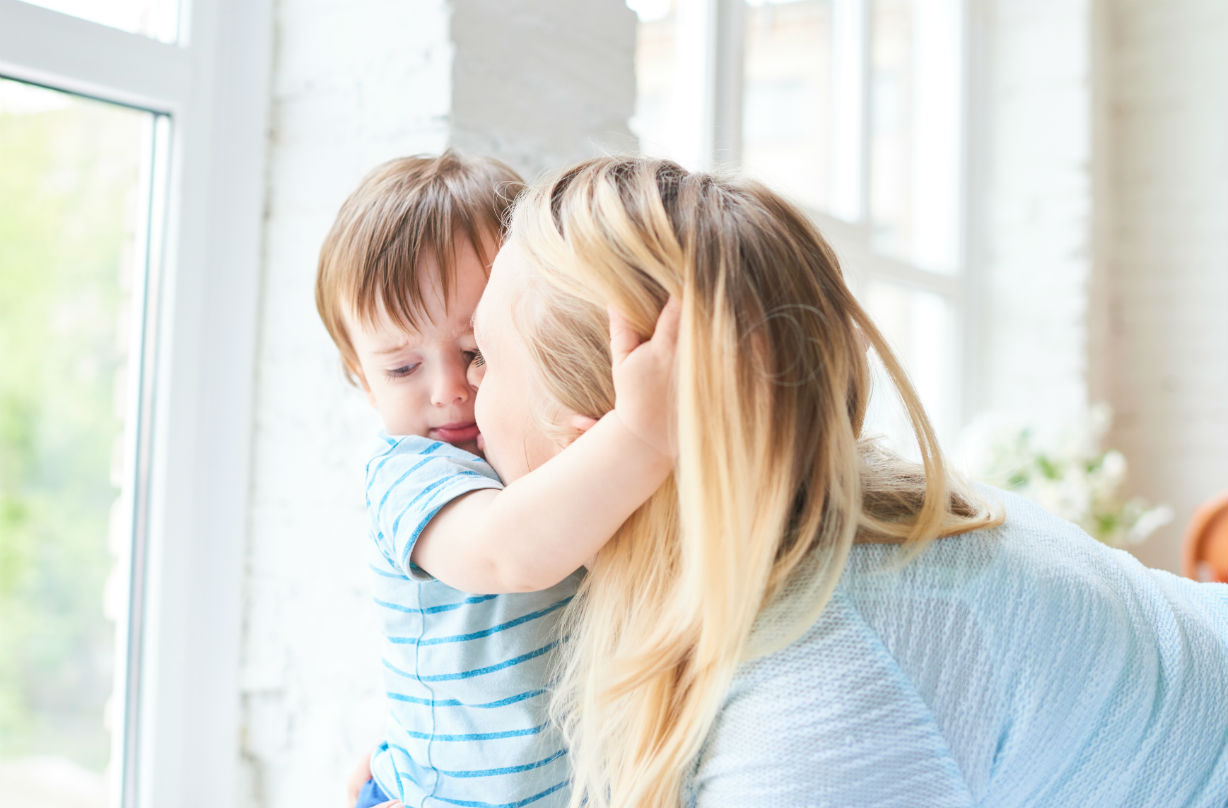
How to handle separation anxiety in children?
Remember, it's only natural for your baby to feel anxious without you, so there's no reason to feel guilty when you need to get on with other parts of your life. In fact, separation anxiety is usually a sign of how well you have bonded with them.
Instead, focus on helping your baby understand and deal with their feelings so they feel more secure. They'll learn that if you leave them, they will be OK and you will come back. If your child's old enough, you can talk to them about what's happening, where you're going and when you'll be with them again.
‘The thing that works best for separation anxiety is consistency, calm, and clear boundaries. And kindness - your child will respond best to gentle understanding in a soothing voice,’ Dr Jacobson adds.
‘As for consistency and clear boundaries, these offer a child security were they can know via a consistent schedule how things work and what will happen next as well as what limits there are. Yes, sometimes mummy is in less of a rush if she doesn't have a big meeting, and can linger for ten minutes more, but she really is still going to work no matter what he or she does.’
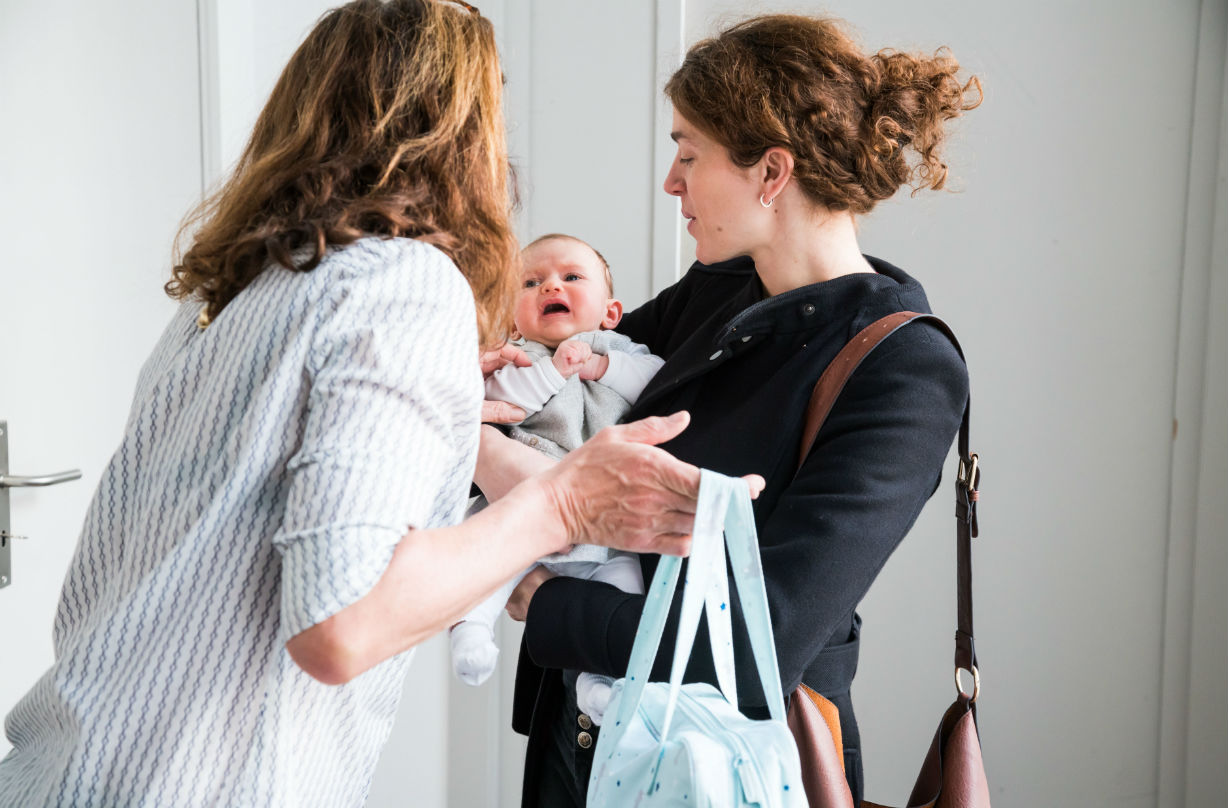
Tips for helping your child with separation anxiety
Start with short separations
To begin with you should practice short separations by leaving you child with someone you trust in a familiar surrounding for short periods of time, such as 10 minutes, whilst you perhaps pop to a local shop for example. Gradually you can build this up to longer separations.
Leave something comforting with your baby
If possible leave a familiar item with your child while you are gone. This could be their favourite toy, or an item of clothing with you scent on it for example and may reassure and calm them during the separation.
‘Try to make new experiences familiar, such as having an item with them from home, or a lunch that you would normally make,' Dr Jacobson says.
Make saying goodbye to your child a positive thing
As hard as it may be to hold back your own tears or upset, it's important to keep smiling and wave happily to your child as you say goodbye to them, as they can certainly pick up on your vibes. The experience of saying goodbye and then having happy reunions, is a very important life lesson for all little people to learn.
How does separation anxiety affect parents?
It's normal for parents to feel a level of anxiety when leaving their child. They are the centre of your world and you don't want them to come to any harm. However, being too protective can be detrimental for everyone in the family, and can have a serious affect on your relationships, friendships and your child's learning and development.
According to Elaine Halligan , Director of The Parent Practice, an organisation enabling parents to bring out the best in their children, feeling anxious as a parent isn't always a bad thing.
She explains: 'Anxiety can be beneficial as our nerves keep us alert and ready to respond to danger, but when it consumes your every minute of the day until your child returns home from school, it’s a sign that this is not a healthy anxiety.'
If you're a parent with separation anxiety, it's likely you won't be properly looking after yourself as you'll prioritise everything for your child.
Elaine says: 'A parent with separation anxiety often will be unable to take good care of their own needs, frequently putting their children’s interests first and it easily and quickly becomes habitual. It’s much harder to stay calm , be a good role model and be in charge if we are in a state of worry.'
She stresses that behaving this way around your children could result in them becoming more anxious. Put simply, Elaine explains: 'Children see, children do. So children may learn early on from role models, that the world is a hostile or dangerous place and that in turn can create all sorts of childhood mental health issues.'
What are the signs you are suffering from separation anxiety as a parent?
According to Elaine, the most obvious signs are when parents obsessively micro-manage their children's lives. This could be over-planning to ensure everything is scheduled or never allowing your child the potential to come to danger.
Elaine explains that this 'inadvertently creates a learned helplessness in our children.'
She continued: 'We do our children no favours when we find don’t let go and it’s a parent’s job to assist our children with the process of growing up and not impede it.'
Tips for parents with separation anxiety:
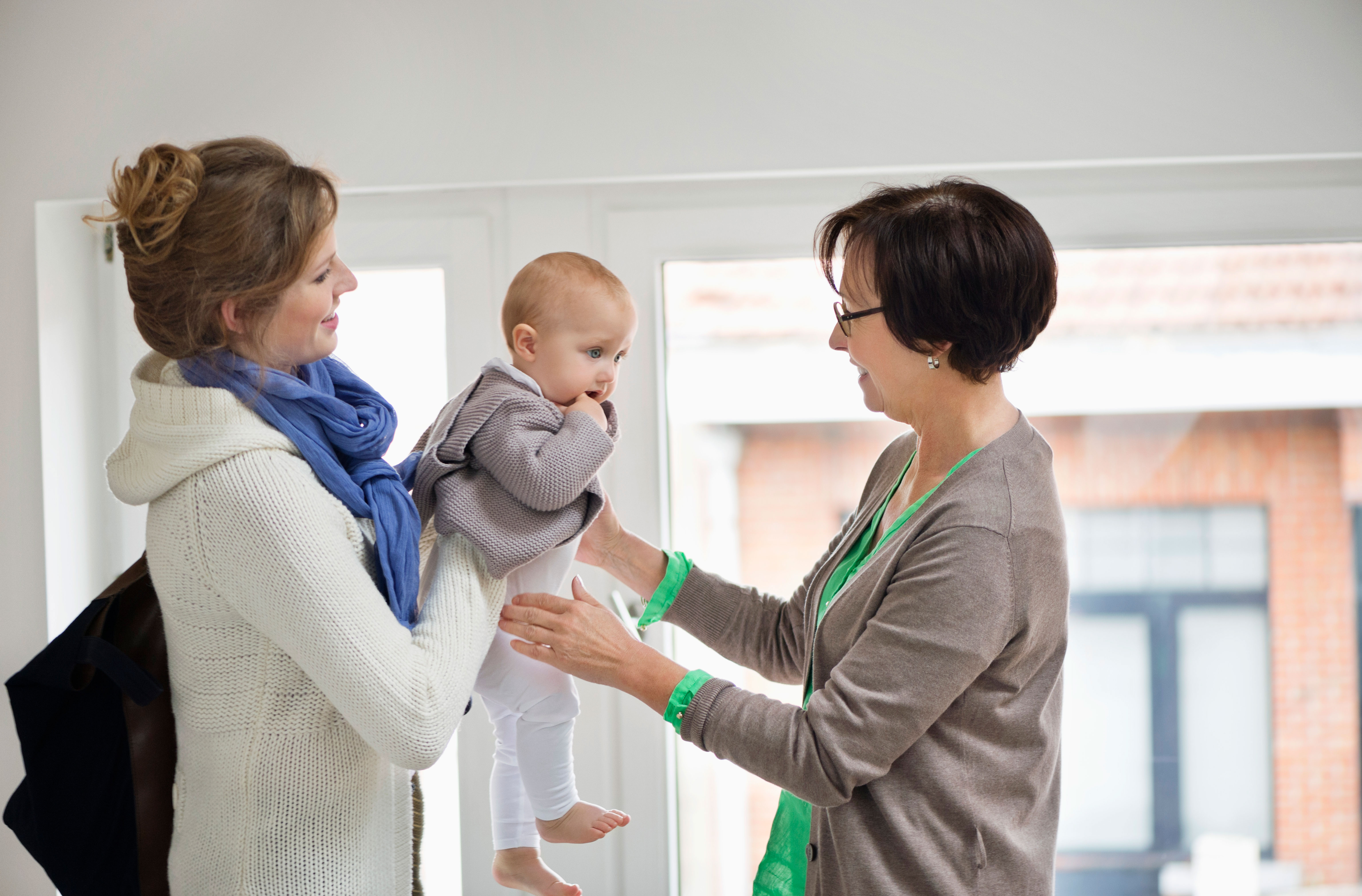
Elaine has the following tips for parents to try if they think they are suffering from separation anxiety.
Prioritise yourself
'Take good care of yourself first! Ensure a healthy balanced diet, good sleep hygiene, regular fresh air and fun and take care of your emotional wellbeing.'
Practice mindfulness
'Make a daily habit of practising some mindfulness, or other NLP (neuro-linguistic programming) techniques. Try some positive self talk to try and calm down the worry brain.'
Make regular emotional deposits
'Think of yourself as a cheque-ing account –if you don’t make regular emotional deposits, you can’t make withdrawals when it really matters.'
Other tips that can help:
Introduce babysitters slowly and gradually and use family and friends first
If you can't imagine leaving your baby with a stranger just yet, build up to it by asking friends and family to watch them for an hour or two, an afternoon and eventually maybe even a night.
Accept that you'll miss your child
If you have to be away from your child, chances are you're going to miss them! Try and use the adult-only time you've got and make the most of it and then you'll really appreciate the time with your baby.
Trusted, informative, and empathetic – GoodToKnow is the ultimate online destination for parents. At GoodtoKnow, our mission is 'simple': we're trying to make sense of parenthood. On the site, you'll find everything you need for a happy, healthy family life. Our huge archive of content includes more than 18,000 articles and 1,500 how-to videos. These include expert-backed advice features on parenting, dealing with relationship changes after having a baby, self-care for mums and managing your family finances. We also feature tried-and-tested product reviews and buying recommendations for every stage of family life - from prams and Moses baskets to birthday gifts and top toys.